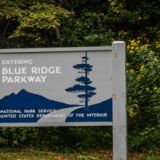Appalachian Trail Thru Hikers Asked To Postpone Thru-Hikes
Appalachian Trail Thru Hikers Asked To Postpone Thru-Hikes. Late winter and early spring is the time for a mass human migration known as Appalachian Trail thru-hike season. Hundreds of hearty souls begin their 2,160 mile odyssey on a lonely mountain in Georgia called Springer. Hikers will usually hike South to North and will traverse fourteen states. The northern terminus of the AT is a foreboding island in the sky called Mount Katahdin, Maine.
The Appalachian Trail Conservancy (ATC) oversees issues regarding the trail and its community. On March 17, 2020 the ATC formally requested 2020 Appalachian Trail thru-hikers to postpone their section hikes and thru-hikes due to the threat of COVID-19. Particular concern was over the hiker habit of centrally congregating. Thru-hiker habits include congregating at shelters, around picnic tables, shuttling in vans and staying in hostels, these practices go against the “social distancing” measures recommended by the federal Centers for Disease Control and Prevention. The ATC states that they “do not make this request lightly,” and they are aware of the time and investment that goes into a thru-hike.
If hikers insist on continuing their hikes, the ATC has strongly urged the following protocol to be followed by hikers.
—Do not start hikes at the southern end of the trail, including Amicalola State Park and Springer Mountain.
—Be financial stable enough to potentially self-quarantine for 14 days if necessary.
—Hike with the understanding that you will have reduced on-trail and localized support, and be prepared to handle that.
—Avoid congregating at shelters and high-traffic areas.
—Be mindful when visiting small and vulnerable communities with fewer healthcare resources.
Thru-hikers attempt to hike the entire trail in a single season. The number of hikers attempting a thru hike increases annually. IN 2017 there were 715 northbound and 133 southbound thru-hikes reported.
“Thru-hiking the Appalachian Trail has had a lasting positive impact on my life,” said former AT thru-hiker Loyd. “I empathize with the hikers who may not get to continue due to the COVID-19 virus. It takes a huge mental, physical and financial commitment to attempt a long distance hike and I hope that everyone planning to hike this season keeps that fire in their belly and returns to the trail when appropriate and walks on to their fulfill their dream!”












